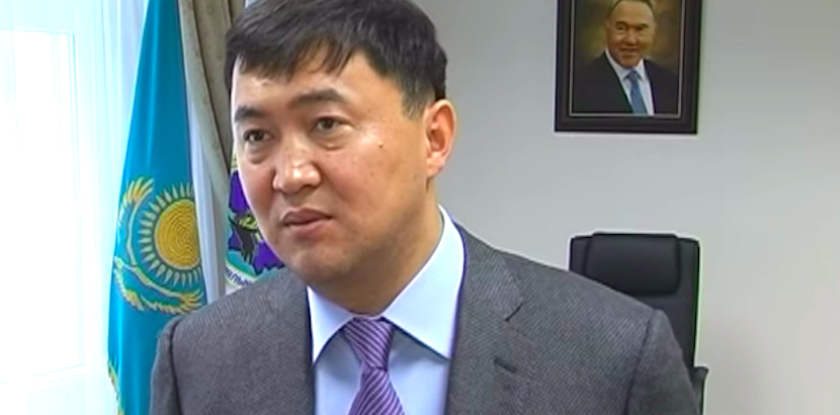The situation in the Kazakh banking sector remains complicated which is evident not only from the official National Bank’s statistics and the numerous publications in the press but also from the President Nursultan Nazarbayev’s angry speech at the January 30 governmental session addressed to the private banks and their owners as well as the state officials who are still unable to sort things out.
 Against this sad background, ForteBank and Kaspi Bank particularly stand out in terms of their energy and optimism (at least, in the country’s informational sphere). With that, they are united by a circumstance which is very important for Kazakhstan – the closeness to the head of the state, President Nursultan Nazarbayev.
Against this sad background, ForteBank and Kaspi Bank particularly stand out in terms of their energy and optimism (at least, in the country’s informational sphere). With that, they are united by a circumstance which is very important for Kazakhstan – the closeness to the head of the state, President Nursultan Nazarbayev.
The thing is that ForteBank is controlled by billionaire Bulat Utemuratov who, in the past, used to be Nazarbayev’s long-time aides and is considered one of the President’s closest allies and a trusted keeper of a part of his personal fortune.
Kaspi Bank used to be under the control of Kayrat Satybaldy, Nursultan Nazarbayev’s nephew, but now, to our surprise, he is absent from the list of the shareholders. And the reasons why the President’s relative has left the bank business are unknown. Neither he nor Kaspi Bank or Satybaldy’s key partners, namely Vyacheslav Kim and Mikhail Lomtadze, have said anything on the subject.
Kayrat Satybaldy’s leaving Kaspi Bank would seem logical if the bank was experiencing difficulties or had a poor financial standing thus ceasing to be desirable from the business standpoint. However, if we are to believe the bank’s press-releases and the statements made by Chairman of the Board of Directors and Chairman of the Managerial Board Vyacheslav Kim and Mikhail Lomtadze, the bank is doing well, moreover, this year, it is planning to conduct an IPO of Kaspi.kz JSC (Kaspi Bank’s parent company) at the London Stock Exchange.
In our opinion, it is the intention to conduct the IPO at the London Stock Exchange that explains Kayrat Satybaldy’s disappearance from the list of the co-owners of Kaspi Bank and its majority shareholder Kaspi.kz.
The thing is that, in the recent years, the foreign investors, the stock markets and the state structures that control and monitor the financial sectors of the developed countries have become much more sensitive and scrupulous. They have stopped turning a blind eye to the presence of officials and the people close to them among the co-owners of the companies that are planning to be listed at the stock exchange. Particularly, when it has to do with the autocrats and their relatives from the developing countries where corruption (including that at the very top of the power pyramid) has become the norm.
The presence of Kayrat Satybaldy, Nursultan Nazarbayev’s nephew among the big players could have put a crimp into Kaspi.kz’ London IPO or even rendered it impossible. By the looks of it, he and his business partners have solved this problem quite simply – the former has given (or sold) his shares to the latter, and the latter have either signed a secret agreement stipulating that, as the nominal owners of the asset, they will now watch over his interests and return the shares to their true owner upon his first demand or will respect his interests in a different way.
Moreover, Kayrat Satybaldy may become Kaspi.kz shareholder again in the course of the LSE IPO though the offshore firms he controls.




